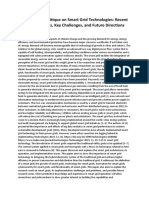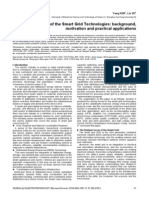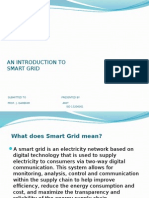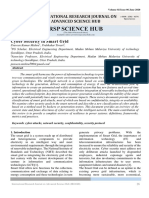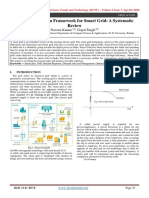0% found this document useful (0 votes)
23 views1 pageStudy 12
The document discusses the implementation and challenges of smart grids, highlighting technical issues such as interoperability, cybersecurity, and data management, as well as socioeconomic barriers. A survey of 40 projects showed improvements in reliability and demand-response capabilities, but identified cybersecurity as a significant risk. Successful smart grid deployment requires standardized protocols, robust cybersecurity measures, and collaboration across sectors to address both technical and human factors.
Uploaded by
adrianjudeblCopyright
© © All Rights Reserved
We take content rights seriously. If you suspect this is your content, claim it here.
Available Formats
Download as DOCX, PDF, TXT or read online on Scribd
0% found this document useful (0 votes)
23 views1 pageStudy 12
The document discusses the implementation and challenges of smart grids, highlighting technical issues such as interoperability, cybersecurity, and data management, as well as socioeconomic barriers. A survey of 40 projects showed improvements in reliability and demand-response capabilities, but identified cybersecurity as a significant risk. Successful smart grid deployment requires standardized protocols, robust cybersecurity measures, and collaboration across sectors to address both technical and human factors.
Uploaded by
adrianjudeblCopyright
© © All Rights Reserved
We take content rights seriously. If you suspect this is your content, claim it here.
Available Formats
Download as DOCX, PDF, TXT or read online on Scribd
/ 1














